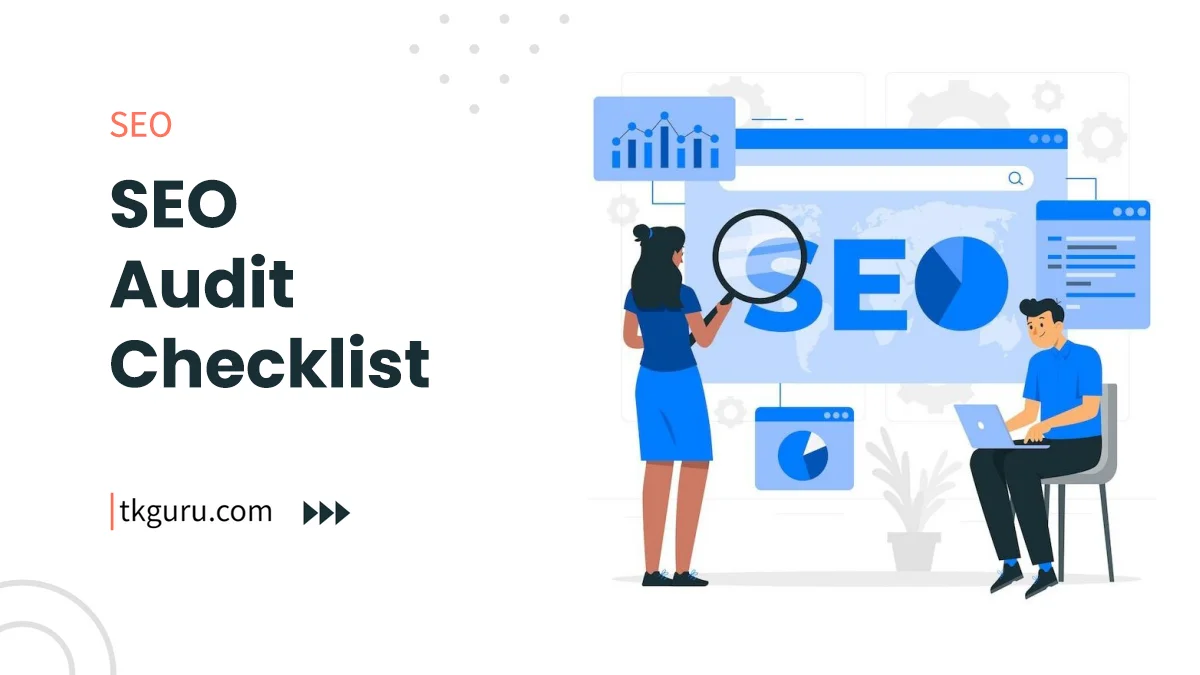Advertisements
Ratings

SEO Audit Checklist – In the digital age, where online presence can make or break a business, Search Engine Optimization (SEO) plays a pivotal role in ensuring your website’s visibility, credibility, and success.
Conducting a thorough SEO audit is like giving your website a health check-up—it helps you identify areas of improvement, optimize your content, and align with search engine guidelines.
This comprehensive guide presents an easy-to-follow SEO audit checklist, complete with tables and explanations, to empower you with the tools needed to elevate your website’s performance.
Preparing for the SEO Audit: Setting the Stage
Setting Clear Goals: Defining Your Objectives
Before diving into the audit process, establish clear goals. Determine whether you’re focusing on technical improvements, on-page optimizations, or a holistic approach. Defining your objectives ensures that your audit efforts remain targeted and effective.
Gathering Necessary Tools and Data: Your Toolkit
The right tools can make your audit seamless and insightful. Here’s a list of essential tools to consider:
| Tool | Purpose |
|---|---|
| Google Analytics | Monitor website traffic, user behavior, and conversions. |
| Google Search Console | Gain insights into search performance and indexing issues. |
| SEO Analysis Tools | Tools like SEMrush or Moz for comprehensive site analysis. |
| Technical SEO Tools | Tools like Screaming Frog for technical aspects assessment. |
Technical SEO Audit: Laying the Foundation
Website Accessibility and Indexing: Welcoming Search Engines
Search engines need to access and index your site properly. Ensure that your website’s robots.txt file isn’t blocking essential pages, and submit your XML sitemap to search engines for efficient crawling.
Site Speed and Performance: Need for Speed
Fast-loading websites are favored by both users and search engines. Use tools like Google PageSpeed Insights to evaluate loading times and identify opportunities for improvement.
Mobile-Friendliness: A Mobile-First World
With mobile users on the rise, your site must offer a seamless mobile experience. Google’s Mobile-Friendly Test tool can help you assess how well your site performs on mobile devices.
Website Architecture and Internal Linking: Navigating User Experience
A logical website structure and effective internal linking enhance user experience and search engine crawlability. Map out your site’s hierarchy and ensure that internal links flow smoothly.
On-Page SEO Audit: Optimizing Your Content
Keyword Optimization: The Right Words Matter
Review your content for keyword integration. Use tools like SEMrush’s On-Page SEO Checker to identify keyword optimization opportunities and ensure natural usage.
Title Tags and Meta Descriptions: The First Impressions
Title tags and meta descriptions are your site’s first impressions in search results. Check that they accurately represent your content and encourage clicks.
Content Quality and Relevance: Value Over Quantity
Examine the depth and value of your content. Eliminate thin or duplicate content and focus on creating informative, engaging articles.
Image Optimization and Alt Tags: Images Speak Volumes
Optimize images for speed by compressing them without compromising quality. Additionally, use descriptive alt tags to make your images accessible to users with disabilities and enhance SEO.
Off-Page SEO Audit: Building Authority
Backlink Profile Analysis: Quality Over Quantity
Not all backlinks are equal. Use tools like Ahrefs to evaluate the quality and relevance of your backlinks. Disavow toxic or spammy links that could harm your SEO.
Social Media Presence and Engagement: Connecting with Audiences
Social media plays a role in SEO by influencing engagement and sharing. Ensure your social media profiles are active and that you engage with your audience effectively.
Content Strategy and User Experience Audit: Enhancing Engagement
User Engagement Metrics: Analyzing User Behavior
Analyze metrics like bounce rates, time on page, and click-through rates to understand user behavior. Optimize content to keep users engaged and encourage interaction.
Call to Actions (CTAs): Guiding User Actions
CTAs prompt users to take desired actions. Ensure that CTAs are strategically placed, visually appealing, and lead to relevant content or conversions.
Local SEO Audit (If Applicable): Targeting Local Audiences
Google My Business Profile: Local Visibility
For local businesses, a well-optimized Google My Business profile is crucial. Ensure accurate and up-to-date information, including your NAP (Name, Address, Phone) details.
Local Citations and Directories: Consistency Matters
Check that your business information is consistent across online directories. Inconsistent listings can confuse users and search engines alike.
Reporting and Analysis: Making Informed Decisions
Compiling Audit Findings: Organizing Your Data
Document your audit findings and categorize them based on priority and areas of improvement. This organized approach will guide your action plan.
Creating an Action Plan: Prioritizing and Assigning
Prioritize tasks based on their impact and feasibility. Set a timeline for implementing changes and assign responsibilities to relevant team members.
Conclusion: Navigating Your SEO Journey
Conducting a thorough SEO audit is akin to steering your website on the path to success.
By systematically assessing technical aspects, optimizing on-page elements, and enhancing user experience, you’re equipping your website with the tools needed to thrive in the competitive digital landscape.
Remember, SEO is an ongoing journey. Regular audits and adjustments based on changing trends and algorithms will ensure your website’s continued growth and visibility.
SEO Audit Checklist FAQs
What is an SEO audit?
An SEO audit is a comprehensive assessment of a website's performance and optimization efforts.
It involves analyzing various factors to identify strengths, weaknesses, and areas for improvement in terms of search engine visibility and user experience.
Why is an SEO audit important?
An SEO audit helps identify issues that might be affecting your website's search rankings, traffic, and overall performance.
It guides optimization efforts by providing insights into what needs to be fixed or improved.
What should an SEO audit checklist include?
An SEO audit checklist typically includes the following elements:
- On-page optimization analysis (titles, meta descriptions, headings, etc.).
- Technical SEO assessment (crawl errors, site speed, mobile-friendliness).
- Content quality and relevance evaluation.
- Backlink profile analysis.
- User experience and site structure review.
- Keyword analysis and strategy assessment.
- Competitor analysis.
- Local SEO factors (if applicable).
How often should I perform an SEO audit?
The frequency of SEO audits depends on factors like the size of your website, the level of ongoing changes, and your business goals.
Quarterly audits are a common practice, but larger websites may benefit from more frequent checks.
Can I perform an SEO audit on my own?
Yes, you can perform a basic SEO audit on your own using various online tools and resources.
However, for more in-depth audits and complex websites, it's advisable to seek the expertise of experienced SEO professionals.
An SEO audit is a crucial step in maintaining and improving your website's performance in search engine rankings.
By following a comprehensive checklist, you can identify and address issues that might be hindering your SEO efforts and ultimately enhance your website's visibility and user experience.
| Web Hosting | Website |
| WordPress | Google Adsense |
| SEO | Affiliate Marketing |
| Blogging | YouTube |
Recent Posts
- Top 6 SEO Companies in Ahmedabad 2024: Unlock Success with the Top SEO Companies in Ahmedabad
- Top 5 SEO Companies in Kanpur 2024: Discover the Top-Rated SEO Companies in Kanpur
- Quality vs Quantity: The Importance of High-Quality Backlinks
- E-A-T and SEO: Expertise, Authoritativeness, Trustworthiness
Related Tags
seo audit checklist excel, seo audit template, on-page seo audit checklist, seo audit tool, seo audit checklist pdf, website audit checklist 2023, website audit checklist pdf, seo audit example






